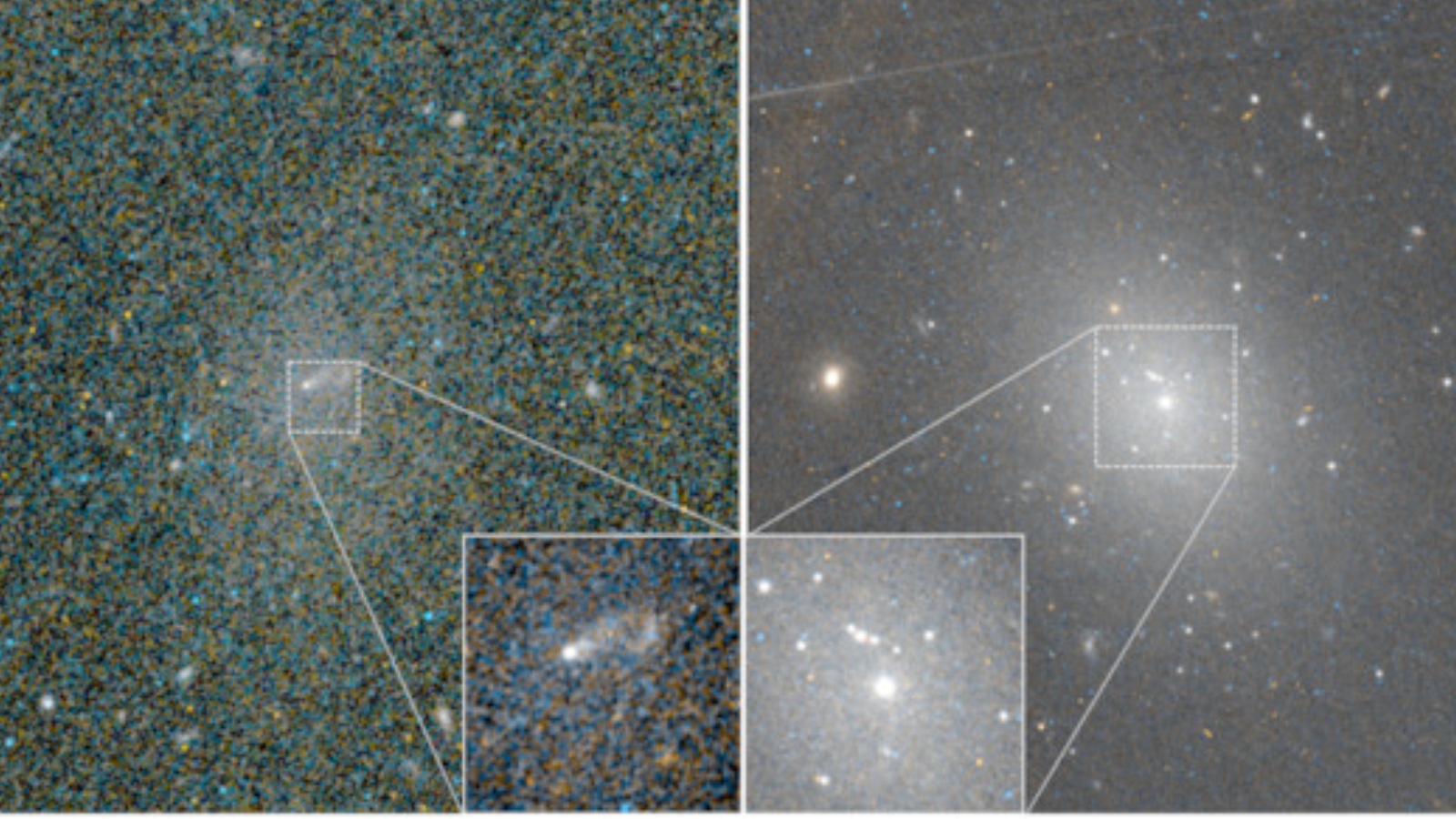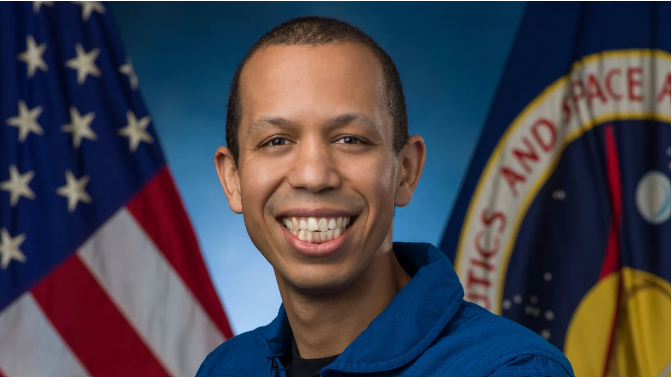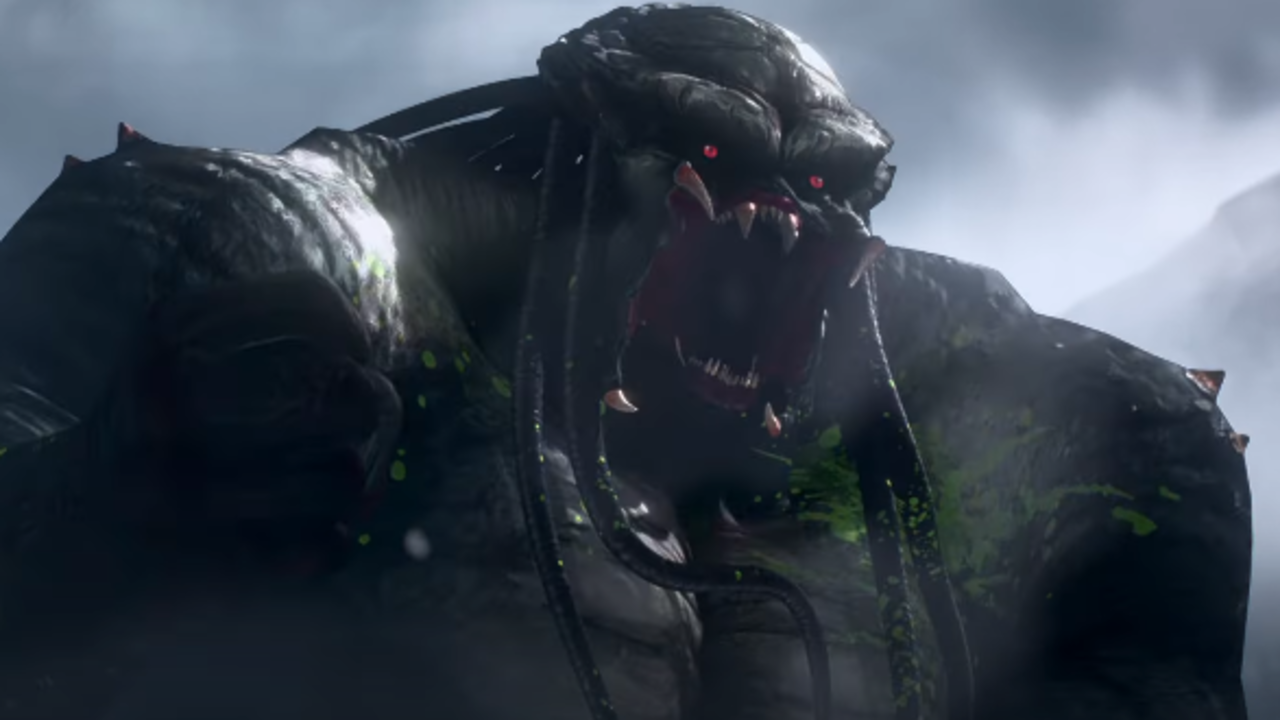Photo Gallery: Hayabusa Asteroid Probe Returns to Earth
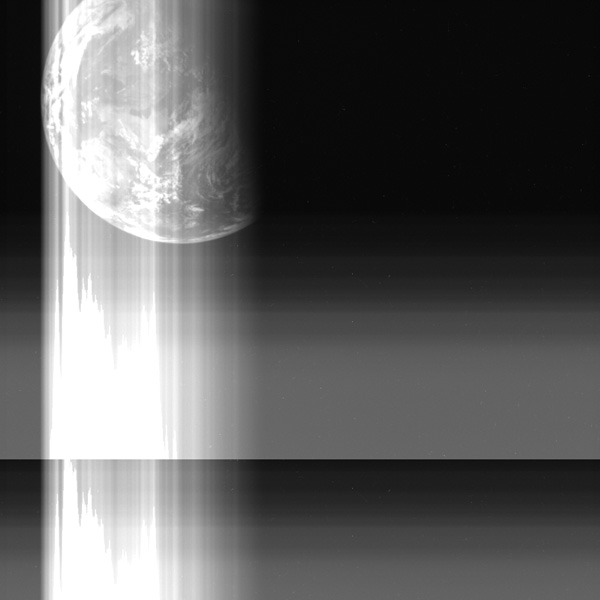
Shine a Light
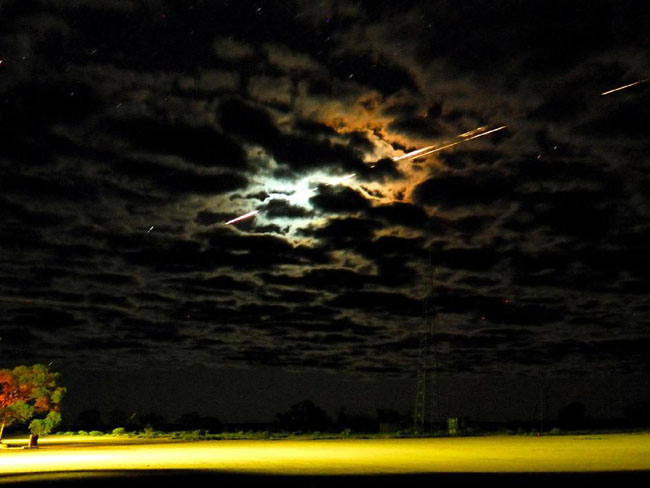
Hayabusa spacecraft streaked across the sky through the clouds as it re-entered Earth's atmosphere over the Woomera Test Range in Australia. In Kingoonya, the re-entry was visible to the human eye for only 15 seconds.
So Lonely
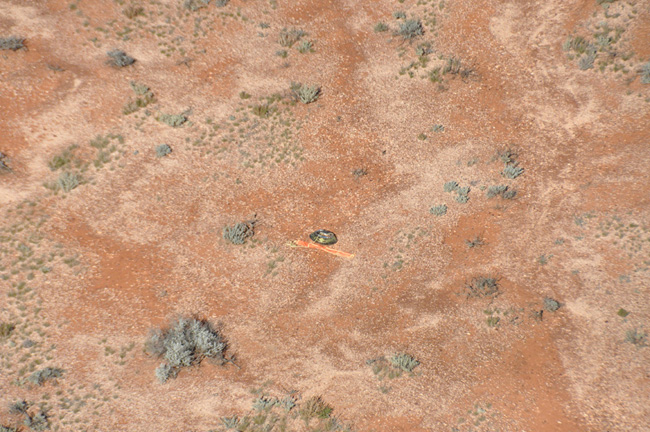
Hayabusa's sample return capsule lies in the Australian wilderness.
Hello, How Are You?
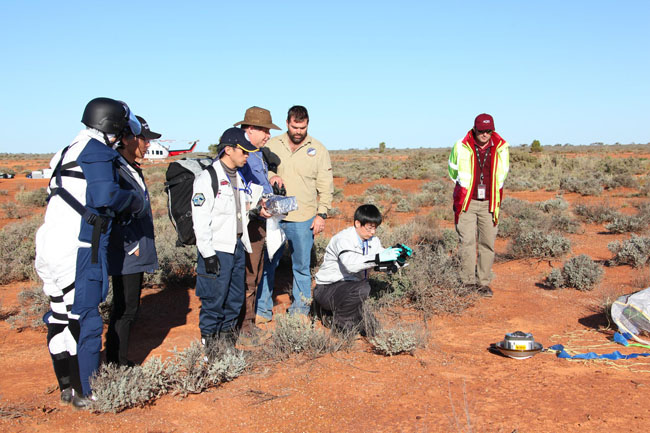
A team of researchers examines Hayabusa's sample return capsule.
I Need Protection
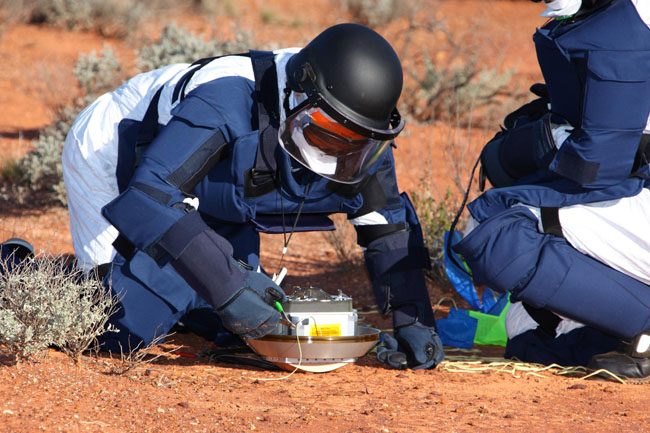
A researcher processes the sample return capsule of Hayabusa.
Waiting on a Friend
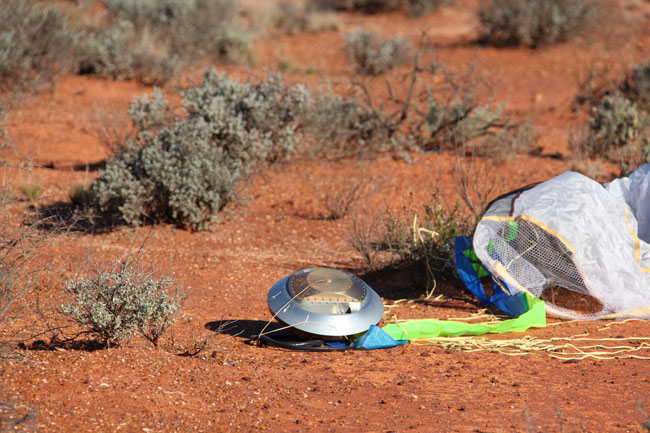
Hayabusa's sample return capsule and parachute lie on the ground in Australia's Woomera Prohibited Area.
Take It Away
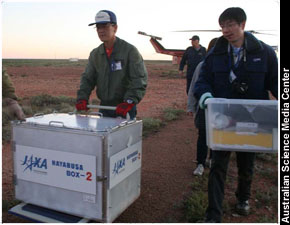
The sample return capsule (inside a box) from Japan's Hayabusa asteroid probe is transported by helicopter to the Instrumentation Building inside the Woomera Test Range after its June 13, 2010 landing. At that site, a temporary clean room had been set up
I Fall to Pieces
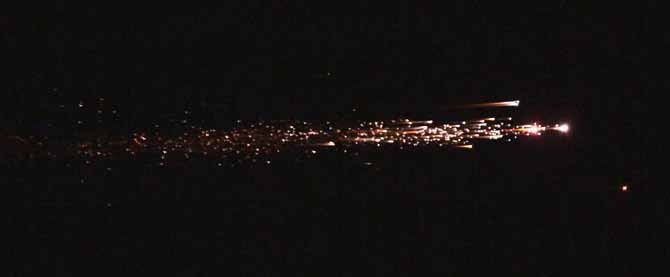
This still from a NASA video shows the Hayabusa spacecraft as it burned up over Australia during re-entry on June 13, 2010 to cap a 7-year mission to the asteroid Itokawa. Hayabusa ejected a sample return capsule (bright dot at lower right) before burning up. It landed in the Australian outback and has been recovered.
Get the Space.com Newsletter
Breaking space news, the latest updates on rocket launches, skywatching events and more!
According to Plan
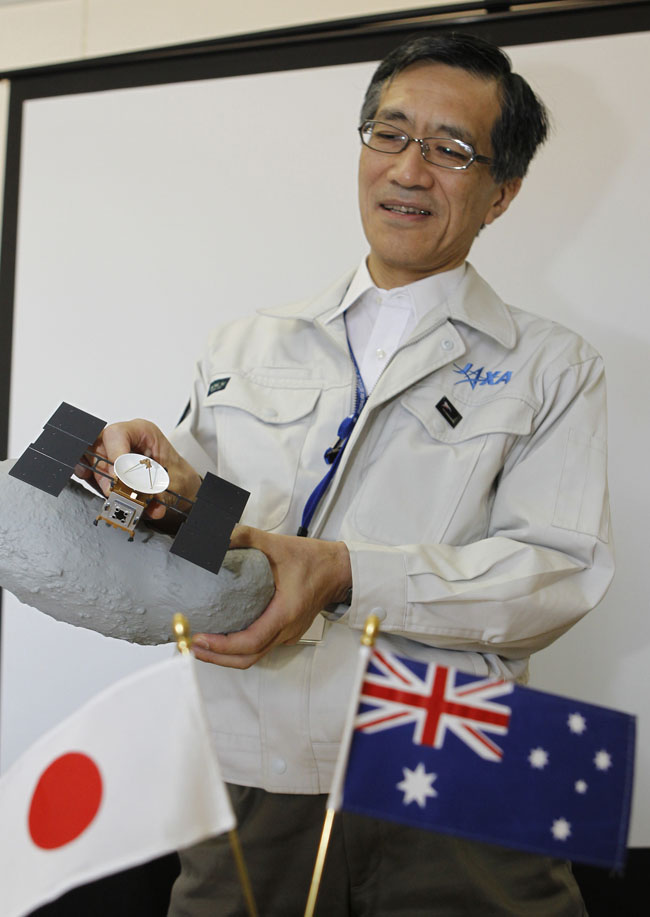
Yoshiyuki Hasegawa, Associate Executive Director, International Space Station Program, JAXA, briefs media at the Press Conference Centre at Woomera prior to the Hayabusa re-entry.
I'm Down (I'm Really Down)
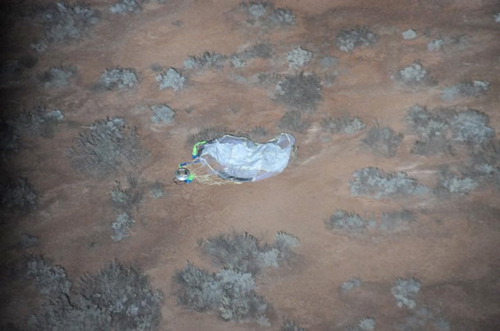
Hayabusa spacecraft's return capsule and parachute lie on the ground in the Australian outback.
All Smiles
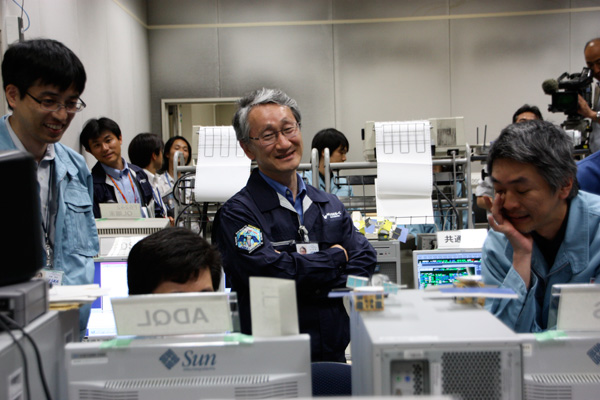
JAXA personnel at work. Click to enlarge
Firefall
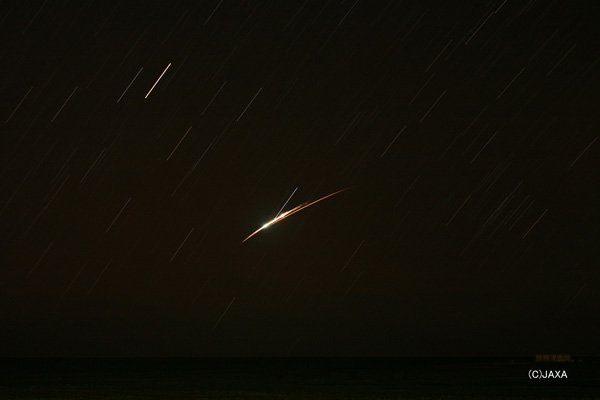
Hayabusa spacecraft re-enters the atmosphere in a dazzling streak.
Join our Space Forums to keep talking space on the latest missions, night sky and more! And if you have a news tip, correction or comment, let us know at: community@space.com.

Space.com is the premier source of space exploration, innovation and astronomy news, chronicling (and celebrating) humanity's ongoing expansion across the final frontier. Originally founded in 1999, Space.com is, and always has been, the passion of writers and editors who are space fans and also trained journalists. Our current news team consists of Editor-in-Chief Tariq Malik; Editor Hanneke Weitering, Senior Space Writer Mike Wall; Senior Writer Meghan Bartels; Senior Writer Chelsea Gohd, Senior Writer Tereza Pultarova and Staff Writer Alexander Cox, focusing on e-commerce. Senior Producer Steve Spaleta oversees our space videos, with Diana Whitcroft as our Social Media Editor.






